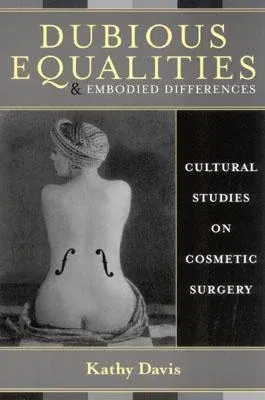Kathy Davis
(Author)Dubious Equalities and Embodied Differences: Cultural Studies on Cosmetic SurgeryPaperback, 11 February 2003

Qty
1
Turbo
Ships in 2 - 3 days
In Stock
Free Delivery
Cash on Delivery
15 Days
Free Returns
Secure Checkout

Part of Series
Explorations in Bioethics and the Medical Humanities
Part of Series
Explorations in Bioethics and the Medical Humanities Series
Print Length
176 pages
Language
English
Publisher
Rowman & Littlefield Publishers
Date Published
11 Feb 2003
ISBN-10
0742514218
ISBN-13
9780742514218
Description
Product Details
Author:
Book Format:
Paperback
Country of Origin:
US
Date Published:
11 February 2003
Dimensions:
22.91 x
14.88 x
1.32 cm
ISBN-10:
0742514218
ISBN-13:
9780742514218
Language:
English
Location:
Lanham, MD
Pages:
176
Publisher:
Series:
Weight:
267.62 gm